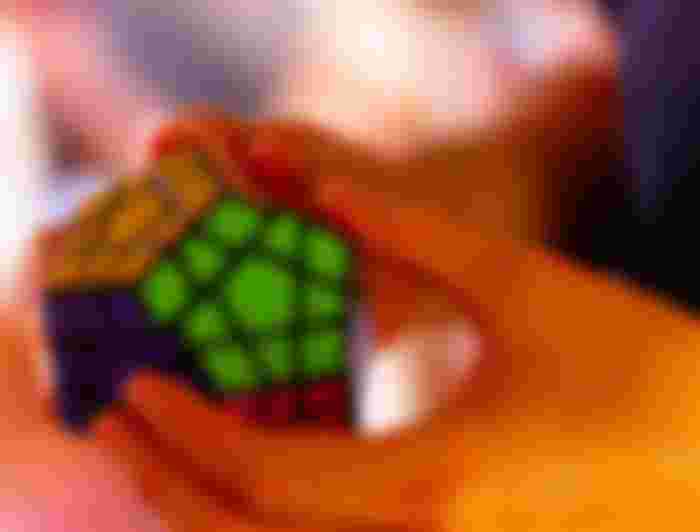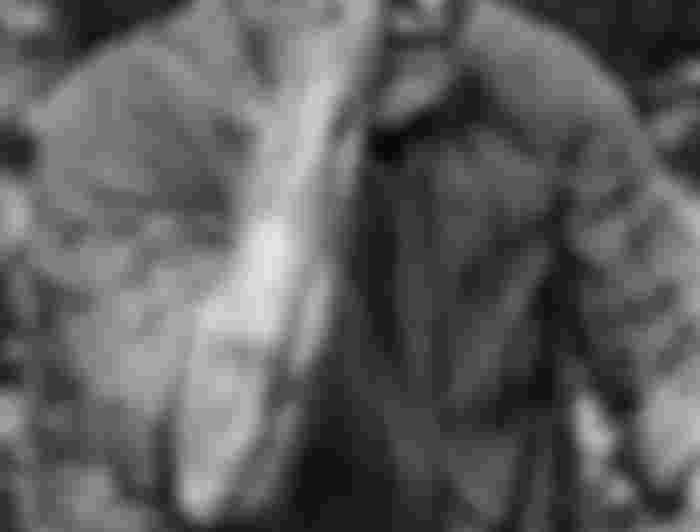Reflect the memory of the processes that are used to obtain specific information through observation and then stored in the brain and retrieve it when you need it, so help this memory to retain information to try again, and prefer to do the work on strengthening memory because sometimes that is not where Encoding data correctly before saving it becomes difficult to retrieve later, and this is what leads to forgetting many things that happen in daily life that may cause some disruptions or inconveniences for the person.

The importance of memory
Memory is one of the most important means that a person possesses to remember all the details in his daily life, as it contributes to learning all new information and storing it, and it also contributes to linking it with old information so that it allows storing and retrieving all information immediately when any stimuli appear in less than a second. Which usually occurs before the first stage, the information is transferred temporarily to the short memory (working memory) and after that matters are studied and activated within the mind, and it ends up being stored permanently in the long-term memory, which allows a person to retrieve all past events when necessary, such as old memories.
There are several areas in the brain with different functions, such as the hippocampus, which is associated with spatial memory, which helps a person to know the nature of the different places he went to and how to reach places where he was before, and there is the so-called amygdala, which is related to emotional matters such as feelings of fear.

Stages of memory processing of information
There are three stages through which memory can process information, and they are as follows:
Memory encryption:
where the memory system receives information through the power of observation in the form of sound, meanings, or visual images and changes them to a form that can be dealt with and stored.
Memory storage:
Information can be stored in the short-term or long-term memory, and this takes place depending on several things, which are the required capacity, the length of stay, the location of the information storage, and other different subtle matters between the two memories.
Memory retrieval:
This is related to information retrieval, and the information is organized sequentially according to its size, time, and other details.

Forgetting
Forgetting is defined as the inability to retrieve memories from the past or not to remember new information and events occurring in the present time or both, and this forgetfulness may be temporary, and it may remain and it may even worsen with time, which may happen.
Because the information simply is no longer present in the memory, or it is still present and stored, but for some reason, it is no longer able to retrieve it, and it occurs repeatedly in his life, which may be normal with age, and it may be considered an indication of health problems that require medical intervention, Also, healthy memory problems may be associated with dementia, in many cases forgetfulness that disrupts a person's daily functions and his professional and social capabilities are one of the first indicators to identify and diagnose him, unlike the natural forgetfulness related to aging that does not disrupt the daily functions of a person.

Forgetting as a medical problem
Examples of indications indicating the necessity to call for medical intervention to affect a person's daily and life functions:
Repeating the same question several times, not being able to remember common words while speaking.
Forgetting a known road, such as the home road, or even forgetting how to drive a car.
Forgetting about things that happened the previous day, for example, even if you give helpful hints to remember.
Forgetting the names of things, where they are placed, and how they are used.

Causes of forgetfulness and lack of focus
Among the reasons for forgetting :
Error retrieving information
This is known as the decay theory, and this theory states that a trace of memory is created every time a specific memory is retrieved, and if a specific memory is retrieved without using it, it will disappear. Meaning that if a person has not seen a person for a long time, his memory will erase the information related to that person, and he will also find a problem in remembering his name when needed.
Intervention
It is another theory that is considered one of the causes of forgetfulness and indicates that when the information coming into the memory is similar to other previously stored information, some memories will interfere with other memories and compete with them inside the human brain, and the intervention has two basic types: pre-emptive intervention and the old memory is in it. Stronger than new; As it makes remembering new things more difficult, and the intervention is retrospective, and it occurs retrospectively when new information overlaps, it affects a person's ability to remember old information.

Failure to store information
It is one of the causes of forgetfulness and is due to the failure to store information in long-term memory, and this occurs if a person is engaged in another work while storing the information.
Willing forgetting
It occurs when a person is exposed to a traumatic accident or unpleasant situation; Where he preoccupies himself and his thinking about another matter by trying to forget the experience he went through, but psychiatrists do not accept such a matter. Whereas, it is difficult to deal with and overcome a problem unless it is expressed and not evaded. Because evading it makes it a memory stuck in the memory, and deliberate forgetting leads to suppression.

Health experts say that one of the most important causes of forgetfulness and lack of focus is the modern technologies that today have become an essential part of a person’s life. Experts believe that smartphones are among the things that lead to a lack of focus, so the individual keeps his account on electronic communication networks constantly open to receive e-mails. permanently; This leads to brain fatigue and a feeling of lack of focus, Research has also confirmed that the individual's nutrition plays a big role in strengthening his memory, so scientists have confirmed that the lack of some vitamins in the body leads to a weakness in memory, such as vitamins E, A, B12 (in English: b12, a, e), as well as the deficiency of some minerals in The body increases forgetfulness, such as sulfur, potassium, phosphorus, iron, and omega-3, which is abundant in fish and nuts, and it is worth noting that most forgetful patients suffer from malnutrition in addition to poor digestion processes in the body; This worsens a person's mood, and thus increases forgetfulness and lack of focus.

Dr. Heba Essawi, a professor of psychiatry at Ain Shams University, says that forgetfulness has both organic and psychological causes, including the following:
Poor diet and not eating meals regularly.
Lack of vitamins in the human body, such as Vitamin B12, the deficiency of which is closely related to memory disorders.
The presence of an imbalance in the hormones of the body; Hormonal imbalance leads to poor memory, and an imbalance in the thyroid gland or a lack of its secretions leads to many memory problems.
Deficiency of a known nerve vitamin, which is called thiamine; A slight deficiency in it leads to an imbalance in brain activities.
Heavy metals poisoning such as lead or mercury.
Lack of blood sugar and iron deficiency, so a person with anemia or anemia suffers from a lack of concentration.
Lack of folic acid.
Anxiety, stress, financial problems, family disputes, obsessive-compulsive disorder, depression, and other mental illnesses.
Daydreams dominate human thinking.
Extreme exhaustion and lack of sleep.
The quality of the lighting that a person is exposed to and the loud sounds that reach the level of noise.
A high temperature in the place where a person sits.

Treatment of forgetfulness and lack of focus
The person must first know what is the real reason behind his forgetfulness and lack of focus, and thus it is easy for him to increase his focus and treat forgetfulness, and since medicine has not yet come to discover a drug to treat forgetfulness and lack of focus, experts believe that the most appropriate solution to treat him is to move away from modern technologies As much as possible and making a new schedule for daily life away from modern technology, it is also recommended to follow a balanced diet, practice relaxation exercises and various exercises, walk quietly in the fresh air, in addition to regulating sleeping hours.

As for new technology addicts, the Neuro Nation website has published some important tips to help them reduce their addiction to it, and these tips are summarized as follows:
Knowing the reason for the lack of focus:
The person who suffers from lack of focus must identify the situations in which his focus is severely weak, and thus he can know what is the cause of the lack of focus, for example, in his work, a person often feels a lack of focus due to the speech of his colleagues next to him, and thus this problem can be solved easily.
Get enough sleep:
It is recommended to sleep long enough; By staying away from smartphones as much as possible, and not reading e-mails related to work during the rest period; As this affects the relaxation of the person and leads to anxiety and the inability to sleep.
Maintaining the order:
Where the arrangement, whether in the workplace or anywhere else, is one of the most important things for those who suffer from lack of focus, as chaos is the main cause of lack of focus and brain fatigue.
Taking a walk in nature:
Taking a walk in the gardens calms the human brain and increases its ability to focus.
Establishing rules for the use of modern technologies:
A person who is bothered by the large number of e-mails received during his work period must set specific rules and times for reading those messages, and communication on the social networking site should be reduced.

Steps to improve memory
Among the steps and activities that may prove effective in improving a person’s memory and functioning:
Maintaining mental activity, such as learning new things, such as learning to play an instrument or playing mental games. Maintaining social activity and increasing social interactions such as meeting friends and family from time to time constantly.
Regulation is one of the most important memory-stimulating activities. Such as time management, task lists, and tools; As sparse and disorganized things and tools may stimulate forgetfulness.
Adequate sleep, as an adult, often needs 7-8 hours of deep sleep. Adopting a balanced diet that contains the nutrients that the body needs.
Perseverance in physical and sports activities and adherence to the doctor's teachings related to treating diseases to maintain a healthy body, thus brain health and memory improvement.











I have always said and known that the brain is the most powerful tool of the human body. We just need to use it to it's fullest